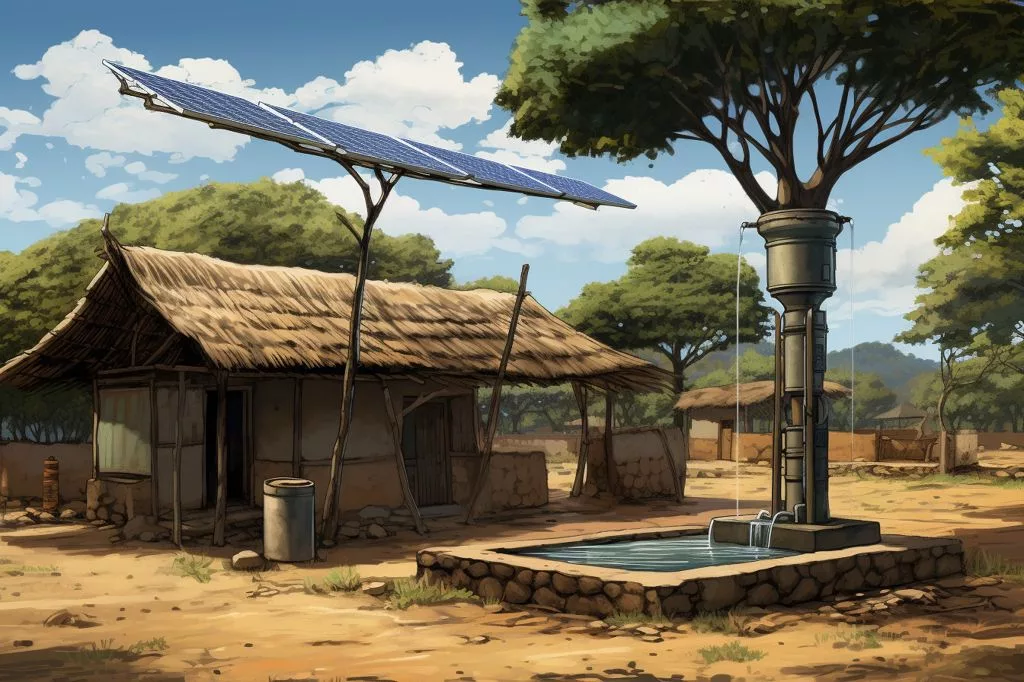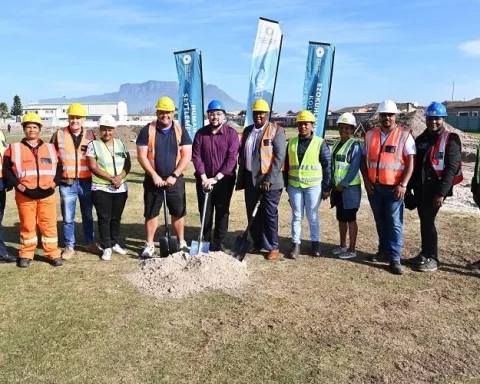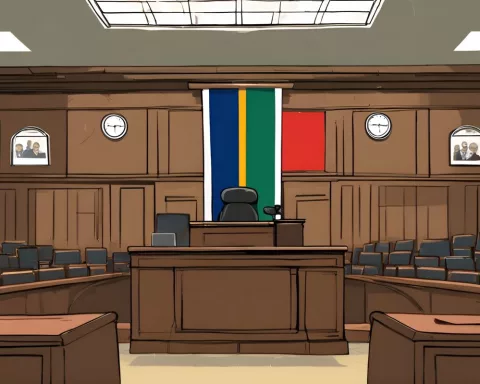The unveiling of these borehole systems represents a beacon of hope, highlighting the possibility for more sustainable, equitable, and eco-friendly solutions to our global water crisis. The Coke Ville Groundwater Harvesting Project involves the development of four solar-powered borehole systems that will supply up to 4.6 million liters of water annually, at no cost, to the communities of Mankweng and Moletjie in Polokwane, South Africa. The project is a collaboration between Coca-Cola Beverages South Africa and the Department of Water and Sanitation, aimed at providing essential water to thousands of inhabitants in the region.
What is the Coke Ville Groundwater Harvesting Project?
The Coke Ville Groundwater Harvesting Project is a collaboration between Coca-Cola Beverages South Africa and the Department of Water and Sanitation aimed at providing essential water to thousands of inhabitants in Mankweng and Moletjie. The project involves the development of four solar-powered borehole systems that are expected to supply up to 4.6 million liters of water annually, at no cost, to the communities.
A New Era of Clean Water Access
The day is of great significance as the Deputy Minister of Water and Sanitation, Ms. Judith Tshabalala, readies herself to give a keynote address in Mankweng, Polokwane. The event marks the unveiling of four solar-powered borehole systems gifted by Coca-Cola Beverages South Africa (CCBSA). This extraordinary project aims to provide essential water to thousands of inhabitants in Mankweng and Moletjie.
These borehole systems have been developed through the Coke Ville Groundwater Harvesting Project, designed and executed by CCBSA to address the critical water issues in Polokwane. With diminishing surface water resources and escalating developmental costs, CCBSA has decided to collaborate with the Department of Water and Sanitation’s mandate, investing in a groundwater harvesting solution to improve water availability and quality in the region.
Approximately 5,000 households are projected to gain from this endeavor. These four solar-powered borehole systems are expected to supply up to 4.6 million liters of water annually, at no cost, to the communities of Mantjana and Makanye in Mankweng, and King Solly Park and Magodu in Moletjie.
Celebrating Innovation and Collaboration
As the sun emerges in Mantjana Village on October 12, 2023, the community comes together to rejoice in the arrival of this crucial resource. The atmosphere buzzes with excitement and appreciation. For the people of Mankweng and Moletjie, reliable access to clean water will not only enhance their daily lives, but also create new opportunities and strengthen the local economy.
The path to this day exemplifies the strength of cooperation and innovation. The fusion of solar energy and borehole technology, a sophisticated answer to the ever-growing demand for water, demonstrates the potential of businesses and governments working together for the greater good.
With each solar-powered borehole system unveiled, the vision of clean water for all becomes increasingly achievable. This contribution from CCBSA symbolizes much more than a mere drop in the ocean; it represents a beacon of hope, highlighting the possibility for more sustainable, equitable, and eco-friendly solutions to our global water crisis.
The Power of Clean Water and Its Impact
The influence of these borehole systems on the lives of Mankweng and Moletjie residents is immense. Beyond the evident health advantages of clean water access, these systems will enable education and training, cultivate relationships and community-building, and ultimately, provide a lifeline to those who have suffered without this vital resource for far too long.
However, even as we acknowledge the project’s accomplishments and the commitment of CCBSA and the Department of Water and Sanitation, we must recognize that the mission is far from complete. With over two billion people globally still lacking clean water access, it is crucial that we persist in pursuing innovative, sustainable solutions to this urgent issue.
Reflecting upon the efforts leading to the unveiling of these solar-powered borehole systems, we observe a compelling example of the potential for creative problem-solving and collaboration to effect significant change in the lives of those most in need. From the villages of Mankweng and Moletjie to communities worldwide, the critical importance of clean water and innovative approaches to delivering it is undeniable.
In Mankweng, a new day begins as solar panels capture the sun’s energy to draw life-giving water from the earth’s depths. The gift of these borehole systems showcases the potential for innovation, collaboration, and empathy to transform lives. As Mankweng and Moletjie residents rejoice in their newfound access to clean water, we are reminded of the power of working together for the common good and the far-reaching effects of such initiatives.
A Sustainable Future Through Innovation and Collaboration
As the world continues to address the challenges of water scarcity, the Coke Ville Groundwater Harvesting Project serves as a testimony to the possibilities that arise when we harness the power of innovative technology and cross-sector collaboration. In the heart of Polokwane, a new dawn emerges, bringing with it the promise of a brighter, more sustainable future for all.
1. What is the Coke Ville Groundwater Harvesting Project?
The Coke Ville Groundwater Harvesting Project is a collaboration between Coca-Cola Beverages South Africa and the Department of Water and Sanitation aimed at providing essential water to thousands of inhabitants in Mankweng and Moletjie. The project involves the development of four solar-powered borehole systems that are expected to supply up to 4.6 million liters of water annually, at no cost, to the communities.
2. Who will benefit from the project?
Approximately 5,000 households in the communities of Mantjana and Makanye in Mankweng, and King Solly Park and Magodu in Moletjie are projected to gain from this endeavor.
3. How much water is expected to be supplied annually?
The four solar-powered borehole systems are expected to supply up to 4.6 million liters of water annually, at no cost, to the communities.
4. When was the project unveiled?
The project was unveiled on October 12, 2023, in Mantjana Village.
5. What technology was used to develop the borehole systems?
The borehole systems were developed using a fusion of solar energy and borehole technology.
6. How will the borehole systems impact the lives of the communities?
The borehole systems will enable education and training, cultivate relationships and community-building, and ultimately, provide a lifeline to those who have suffered without this vital resource for far too long.
7. What is the significance of the unveiling of the borehole systems?
The unveiling of the borehole systems represents a beacon of hope, highlighting the possibility for more sustainable, equitable, and eco-friendly solutions to our global water crisis.
8. What does the project symbolize?
The project symbolizes much more than a mere drop in the ocean; it represents a beacon of hope, highlighting the possibility for more sustainable, equitable, and eco-friendly solutions to our global water crisis.








